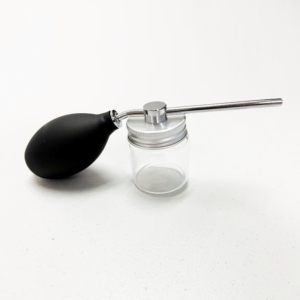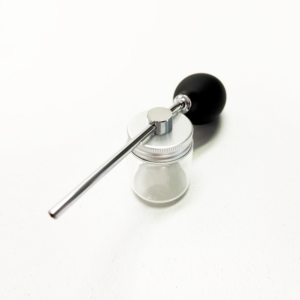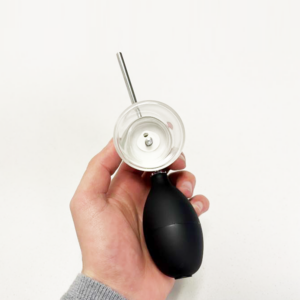As medication development continues to advance in the specialty of Ear, Nose, and Throat (ENT), more patients are finally finding what works for their challenging conditions, especially for those suffering from seasonal allergies, severe allergies, and other conditions.
Health Dimensions Clinical Pharmacy (HDRx), a compounding pharmacy with a robust reputation among ENT practitioners, stands out as the top choice for customized medications for patients. Based in Michigan and serving several states including Ohio, Indiana, Illinois, Wisconsin, Minnesota, and Florida, HDRx combines expertise, innovation, and personalized care to address the unique needs of ENT patients.
Navigating the world of ear, nose, and throat (ENT) health can sometimes feel like a complex puzzle, especially for those battling:
- Chronic Sinusitis
- Allergic Rhinitis
- Ear Infections (Otitis Media and Otitis Externa)
- Tinnitus
- Vertigo and Meniere’s Disease
- Nasal Polyps
- Post-Nasal Drip
- Laryngopharyngeal Reflux (LPR)
- Sore Throat and Tonsillitis
- Pharyngitis and Laryngitis
- Dry Mouth (Xerostomia)
- Burning Mouth Syndrome
- Oral Thrush and other fungal infections
- Eustachian Tube Dysfunction
- Sleep Apnea and Snoring (CPAP intolerance solutions)
- Vocal Cord Nodules
- Epistaxis (Nasal Bleeding)
- Head and Neck Cancer Support (e.g., mucositis management)
- More
HDRx Pharmacist Recommendations for Most Common ENT Conditions
Initially, empiric antibiotic and symptom therapy of chronic or recurrent sinus infections, Budesonide 0.6 mg/Gentamicin 2 0mg/Mupirocin 15 mg sinus irrigation is commonly prescribed.
For polyp reduction or post-operative care, the common Budesonide irrigation dose range is 2–4 mg via sinus rinse.
For patients with allergy related inflammation, Budesonide 1.2 mg sinus rinse is recommended.
Other antibiotic and antifungal combinations can be ordered based on culture and sensitivities of the infection.
Additionally, Acetylcysteine 100 mg can be added to any sinus regimen — acetylcysteine is a documented biofilm breaking agent. The presence of biofilm can make microorganisms 10–100 times more resistant to anti-infectives.
For all sinus rinses we recommend administering the nasal rinse twice daily.
Betahistine and Meniere’s Disease
With a staggering 93% of vertigo cases diagnosed as Meniere’s Disease, the need for medication is clear.
“Meniere’s disease impacts 12 in 1000 people. There are 600,000–750,000 cases of Meniere’s disease in the United State and 45,000–60,000 new cases are diagnosed annually.”
Betahistine has been used since the 1970s and is one of the most frequently prescribed medications for vertigo worldwide. Betahistine is thought to reduce symptoms through its action on vestibular histamine receptors. At HDRx, we provide Betahistine in various regimens, catering to the unique dosing needs of our patients.
Why Are Patients Being Prescribed Betahistine for Meniere’s Disease?
- Betahistine has been in use since the 1970s and is one of the most frequently prescribed medications worldwide for vertigo.
- Betahistine may reduce the symptoms of Meniere’s disease through its action on vestibular histamine receptors.
- Betahistine is generally well tolerated and has a low risk of adverse events.
- Most requested regimens are: 8-mg, 12-mg, 16-mg, or 24-mg capsules, TID (and occasionally bid)
Addressing ENT conditions means having access to a variety of medications and delivery methods to optimize patient outcomes:
- Otic Insufflator: Our Insufflator delivers medication to the ears. Example medications are antibiotics, antifungals, and steroids. Powders are potentially effective in addressing infections and inflammation without adding more moisture into the ear canal.



- Nasal/Sinus Irrigation: Cleanse and moisturize the nasal passages. It’s designed to flush out allergens, irritants, and mucus, helping to reduce nasal congestion, improve sinus drainage, and alleviate symptoms associated with conditions like chronic sinusitis, allergic rhinitis, and post-operative recovery.
- Mouthwash Medication: Mouthwashes address pain and infection post tonsillectomy. The mucositis therapy also addresses mouth sores caused by different forms of chemotherapy/radiation therapy. We have one containing Ketamine to help with managing pain.
- Nasal Sprays: Address a range of nasal and sinus conditions, such as allergic rhinitis, sinusitis, nasal polyps, and nasal congestion. These sprays can deliver steroids, antihistamines, decongestants, or saline solutions directly to the nasal passages, helping to reduce inflammation, alleviate allergic reactions, open blocked nasal passages, and moisturize dry nasal mucosa. By targeting the site of discomfort or infection directly, nasal sprays offer targeted relief and support the overall health of the nasal and sinus cavities.
- Oral Liquids: This form of medication may be particularly beneficial for patients who have difficulty swallowing pills or tablets. Oral liquids can be used to manage symptoms of sore throat, ear infections, tonsillitis, and various other infections or inflammatory conditions of the upper respiratory tract.
- Troches: Type of lozenge designed to dissolve slowly in the mouth, delivering medication directly to the mucous membranes of the oral cavity and throat. These are commonly used to address fungal infections, sore throats, oral thrush, and various other conditions affecting the mouth and throat areas.
